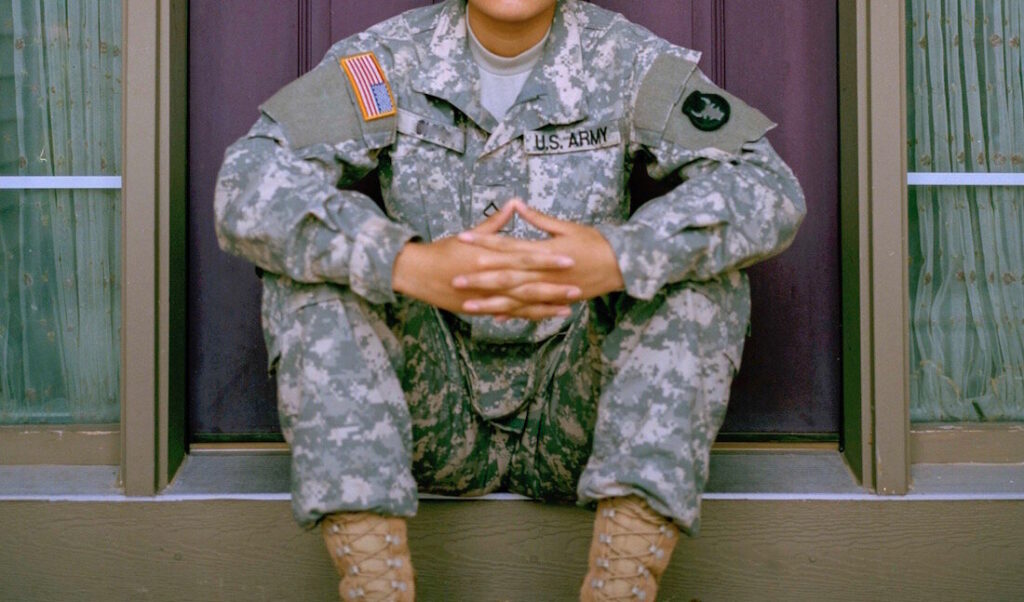This week, a new study came out that shocked a number of people with vested interest in U.S. military services. Research conducted in a combined effort between the University of Nevada, Las Vegas (UNLV) and Bowling Green State University unveiled a potentially concerning rate of gambling problems among active duty military.
While some may dismiss this with a statement that “military are people too” and should not be beholden to a different standard, it’s the disproportionate rate that is alarming. The study found that gambling among active duty military was 3.5 times higher than among civilians. Further, the rate of problem gambling among active duty military was nearly 69 percent compared with almost 19 percent among civilians. You can read more about the data here. The intent of this article however, is to reach those who have gone online and searched for information for military gambling addiction and how to get support. Below is a practical breakdown of everything you need to know along with a call-to-action for where to seek immediate help.
Why Gambling Disorder is a Growing Problem in the U.S. Military and Where to Get Immediate and Confidential Help
Why Are the Military More Vulnerable to Gambling Disorder?
While further studies validating the disproportionate rate of gambling disorder among military are needed, it’s important to address why personnel may be more vulnerable.
Idle time in seclusion from the outside world is one potential precursor. With limited ability to leave a base (etc.) to socialize and participate in other typical civilian activities, personnel find escape in individualistic pursuits such as gambling. Studies also find that military exhibit thrill-seeking behavior and addiction to adrenaline, which goes hand-in-hand with gambling. And if you think that access is a problem, consider the fact that US Department of Defense (DoD) operates over 3,000 slot machines on overseas bases. Moreover, the proliferation of online sports betting and casino gaming in the USA has put the activity in the palm of a soldier’s hand.
Why Are Military Personnel Not Getting the Help Needed?
Having the time, behavioral traits, and place sets the table for gambling, but there’s another thing that can quickly escalate casual participation into a full blown disorder. Military personnel simply don’t get the help they need to nip a current or growing problem in the bud.
Why are military personnel not getting the help they need?
One word that is used a lot when discussing mental health disorders, is stigma. Soldiers are proud, often gesturing amongst peers and superiors alike to convey strength and confidence. Admitting that one may have an addiction or problem is akin to showing weakness. As a result, an underlying gambling disorder can go unchecked, and the problem festers and becomes worse over time. From there, a soldier with an undiagnosed and untreated gambling problem can get caught in a destructive rollercoaster of negative feelings, returning for further gambling to escape those feelings. This vicious cycle generates even more negative emotions. These emotions reverberate to cause significant damage to their career, personal life, finances, and overall health and wellness. One study found that 40 percent of US veterans receiving treatment for gambling problems reported a suicide attempt.
The other blockade to getting help with military gambling addiction and associated problems, is the concern around confidentiality. Personnel may feel real or perceived discouragement from getting help for the behavioral disorder. It’s easy to see why, when your consider that the DoD literally arms them with the tools (slots) to gamble in the first place. Calling out for help could subsequently be taken as a challenge to the chain of command in a roundabout manner. The fear that active duty military can face consequences in their career, including discharge, if they report a gambling problem to military medical staff keeps them from getting help.
Where to Get Immediate and Confidential Help
If you are (or a loved one is) enlisted in the U.S. military and can no longer accept the toll that gambling has taken on your life, it’s time to take action. That said, given that you’re not comfortable reporting the concern to military medical staff, you need a channel for immediate yet confidential help. This is where Kindbridge Behavioral Health Services comes in. We are the world’s first teletherapy platform with a focus specifically on the successful treatment of gamblers struggling with their mental health. The platform has been designed to offer help to those who have had limited access due to concerns about stigma and damage to reputation. Further, Kindbridge provides the highest quality, HIPAA compliant, virtual technologies to enable military personnel (and others) to connect with qualified therapists in a safe and secure online environment to drive successful outcomes.
There’s only one thing left for you to do. Call +1 (877) 426-4258 or email [email protected] to speak to our care co-ordinator.
We are grateful for your service, now allow us to be of service to YOU.

